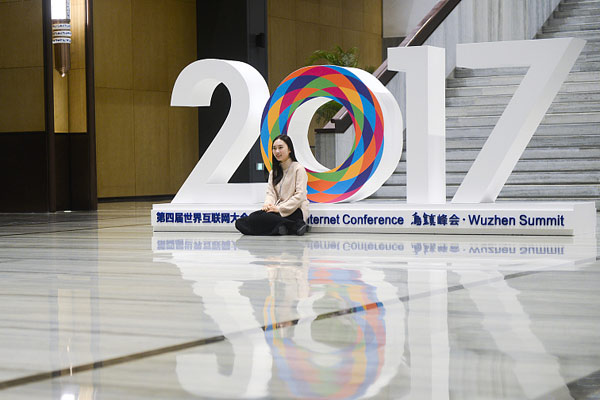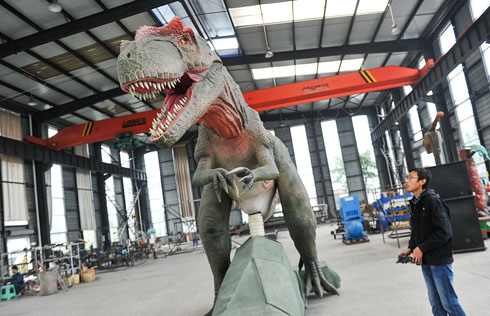

SHANGHAI - Shanghai aims to develop three bonded areas into China's first free trade zone (FTZ) to facilitate global trade.
The move is the city's latest attempt to globalize its presence and build itself into an international financial and shipping center, in line with a national strategy announced by the State Council in 2009.
As China's first customs surveillance zone, Shanghai's Waigaoqiao bonded zone enjoyed a number of preferential customs policies when it was established in 1990. Now, together with zones in Yangshan Port and Shanghai Pudong International Airport, the putative FTZ is set to develop into an official area providing free exchange of currency, tax exemptions and other services, according to sources.
"A report concerning the construction of China's first FTZ, in Shanghai's Pudong district, has been submitted to the regulatory authorities and has attracted great attention. Currently, the Shanghai municipality is working on this matter," said Li Boxi, a researcher at the Development Research Center of the State Council, quoted by Xinhua News Agency on Thursday.
Li said Shanghai is the most qualified city in China to build an FTZ, thanks to its interconnection with the international business community and its desire to boost free trade.
Jian Danian, deputy director of the body that administers Shanghai's bonded areas, said that the city has set up its own bonded area, but there is still a long way to go from being a bonded area to becoming a free trade zone.
"We should make innovative breakthroughs in related policies and set up complete customs regulation toward the free trade zone," Jian said.
Figures show that to date, Shanghai's bonded areas have approved 11,000 investment projects from 94 countries and regions with an aggregate investment of as much as $24 billion. A total of 111 Fortune 500 enterprises have invested in 263 projects in the Shanghai zones.
It is estimated that in 2011, Shanghai's bonded areas will realize up to $100 billion in foreign trade, an increase of 22 percent year-on-year, with an import volume of $75 billion, a rise of 21 percent year-on-year, added Jian.
"The taxation policies for the areas, together with strong foreign direct investment, lower transaction costs and government policies have made China's bonded areas hot spots for the growth of export processing," Graham Mather, chairman of the World Free Zone Convention, said during the 11th World Free Zone Convention in Shanghai.
China's zones provide a powerful and encouraging picture, with Shanghai to the fore. The development of large-scale free trade ports is attractive to world markets.
Experts believe that stressing the significance of free trade will help steer the world's major powers away from protectionism.
"A key development, which we are seeing right around the world, is the transformation of zones from basic export-processing zones, efficiently handling a large volume of traded goods and commodities, to zones that encompass the broadest possible range of activities," said Mather.
In Mather's opinion, the zones must offer a full set of business services, and Shanghai would clearly benefit if its bonded areas were able to experiment with offering financial services linked to their massive trade volumes, similar to the Dubai International Finance Center.
This is the first time that the two-day convention has been held in China. The organization, headquartered in London, started to hold annual international conventions in 2001 to promote the development of international free trade zones.
 4th World Internet Conference concludes
4th World Internet Conference concludes
 Starbucks Reserve Roastery set to open in Shanghai
Starbucks Reserve Roastery set to open in Shanghai
 Smile to get discounts in Tmall's unmanned supermart
Smile to get discounts in Tmall's unmanned supermart
 Top 10 richest Chinese women in 2017
Top 10 richest Chinese women in 2017
 World leading internet sci-tech achievements released in Wuzhen
World leading internet sci-tech achievements released in Wuzhen
 Top tech CEOs take to the stage as Wuzhen Summit opens
Top tech CEOs take to the stage as Wuzhen Summit opens
 Major topics at 4th World Internet Conference
Major topics at 4th World Internet Conference
 'Made in China' dinosaurs amuse the world
'Made in China' dinosaurs amuse the world